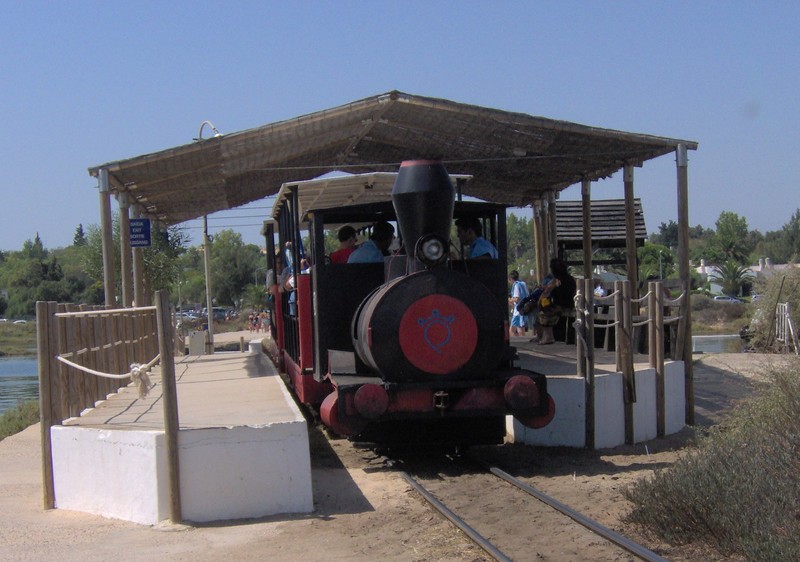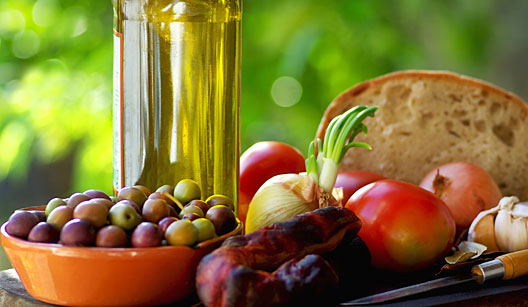 It is difficult to compare the economic and social problems experienced in a well-known and frequented bathing area in the high season with those living in the interior of Portugal. But, putting the problem of seasonality into the equation, one can clearly understand the commonalities between the Barril Project, which is now being launched, and other national projects for local development that have young graduates as a central element, located in low-density areas .
It is difficult to compare the economic and social problems experienced in a well-known and frequented bathing area in the high season with those living in the interior of Portugal. But, putting the problem of seasonality into the equation, one can clearly understand the commonalities between the Barril Project, which is now being launched, and other national projects for local development that have young graduates as a central element, located in low-density areas .
The «Pedras d'el Rei» tourist development and the University of Algarve have created a consortium, which has already joined many other entities, which aims to replicate in this area of the municipality of Tavira a model that was originally launched in Querença, in a project named after the village of Loulé.
At Barril, the original idea was, as expected, adapted to the local reality, but the methodology is similar and the mentor is the same, university professor António Covas. The professor at the University of Algarve (UAlg) and the director of the enterprise «Pedras d'el Rei» António Almeida Pires spoke with the Sul Informação and explained what Project Barrel is.
 This is a tourist development project in this summer area in the municipality of Tavira, which has as its reference the «Pedras d' El Rei» development, the former tuna armature and current commercial area of Praia do Barril, connected to it. the nearby fishing village of Santa Luzia and the Estação Agrária de Tavira.
This is a tourist development project in this summer area in the municipality of Tavira, which has as its reference the «Pedras d' El Rei» development, the former tuna armature and current commercial area of Praia do Barril, connected to it. the nearby fishing village of Santa Luzia and the Estação Agrária de Tavira.
Add to these elements the “natural amenity” of the initiative's implantation area and you get “the necklace of pearls” on which the Barril Project is based, illustrated António Covas.
Having identified the raw material and the tools available, we sought to find people to put projects upright. And candidates were not lacking.
About 170 young graduates proposed a one-year professional internship, during which they will try to devise, develop and implement business projects. From this more than one hundred and a half candidates, ten young people are being chosen at this moment, who will settle in Barril from September onwards.
The selected interns, licensed in different areas, will be asked to be creative and bold, under the guidance of the project coordinators. “A kind of small business incubator will be created, which they can devise”, said António Covas.
 At the moment, «we are in the pre-project phase» and the process is being directed by «an installation committee» of which António Covas and Almeida Pires are part.
At the moment, «we are in the pre-project phase» and the process is being directed by «an installation committee» of which António Covas and Almeida Pires are part.
The founding consortium is made up of the entities represented by the interviewees, as well as the Portuguese Environment Agency, the Institute for the Conservation of Nature and Forests, Câmara de Tavira and Associação Almargem.
In a second ring, there are other public and private entities that have already been contacted (CCDRA and groups that manage private hospitals in the region are examples) and there will also be “a third ring, which are the social networks”.
Sun and Beach with "extremely scarce" time use
 In the morning not always sunny (but very hot) of the summer when the Sul Informação interviewed the main drivers of the project, the problems of seasonality seem to be less dramatic than they actually are.
In the morning not always sunny (but very hot) of the summer when the Sul Informação interviewed the main drivers of the project, the problems of seasonality seem to be less dramatic than they actually are.
On each trip to the beach, the small train that serves the bathing area is full, a harbinger of good deals in the commercial area and concessions.
The problem is that this is not the case, two-thirds of the year. «The product Sol e Praia has an extremely limited time use», illustrated Almeida Pires
The objective of Projeto Barril is to reduce seasonality and create a model that is based not only on sun and beach, but also on a diversified offer, geared towards the eight months of low season. And this will be possible, the project coordinators believe, through a strong commitment to two sectors: «senior and accessible tourism and the Mediterranean diet».
There, very close to the anchors of the old frame, today a permanent artistic installation, which recalls the history of the place, the two interviewees use the image of the anchors, these metaphorical ones, to give an idea of what is wanted when investing in these two areas.
 With these two anchors and using the pearls as «visibility pivots», an attempt will be made to create varied businesses. «Looking at this space, many people do not know what happened here until 1966», highlighted Almeida Pires. Thus, the «history and culture» associated with this ancient tuna fishing camp, as well as those of neighboring Santa Luzia, are a field to explore.
With these two anchors and using the pearls as «visibility pivots», an attempt will be made to create varied businesses. «Looking at this space, many people do not know what happened here until 1966», highlighted Almeida Pires. Thus, the «history and culture» associated with this ancient tuna fishing camp, as well as those of neighboring Santa Luzia, are a field to explore.
Others are «the rich fauna and flora» of this area, in the Ria Formosa Natural Park, the development of the nautical component, health and well-being services and also agricultural production.
The field is vast and tends to widen as soon as young blood arrives, with the irreverence and creativity associated with it. Putting several young graduates in the same place, discussing ideas, has proved extremely beneficial in the other territorial cooperation projects in which António Covas is involved (there are already six), which were also inspired by the Querença project.
«We must break with the tendency to do the same, in different times», considered Almeida Pires. Who better than the younger ones to cast a fresh look at the issues?
Project wants to promote symbiosis between tourism and other areas
 In Projeto Barril, the concept of tourism works as an aggregator and not as a limit, since it is intended that projects appear in the most varied areas. The idea is that these diverse activities are combined with the already existing tourist activity, boosting the offer and taking advantage of a possible increase in demand. A symbiosis, therefore.
In Projeto Barril, the concept of tourism works as an aggregator and not as a limit, since it is intended that projects appear in the most varied areas. The idea is that these diverse activities are combined with the already existing tourist activity, boosting the offer and taking advantage of a possible increase in demand. A symbiosis, therefore.
In this field, the Mediterranean diet is a good example. Under this “rain hat” is agricultural production and research, gastronomy and restoration and even health, as this is considered a very healthy diet.
On the other hand, international projection also comes in, as Tavira leads the Portuguese candidacy of the Mediterranean Diet for World Heritage, which should be approved "in December, at the UNESCO meeting in Azerbaijan."
(Corrected entities belonging to the Projeto Barril consortium at 17:19 pm)


















Comments